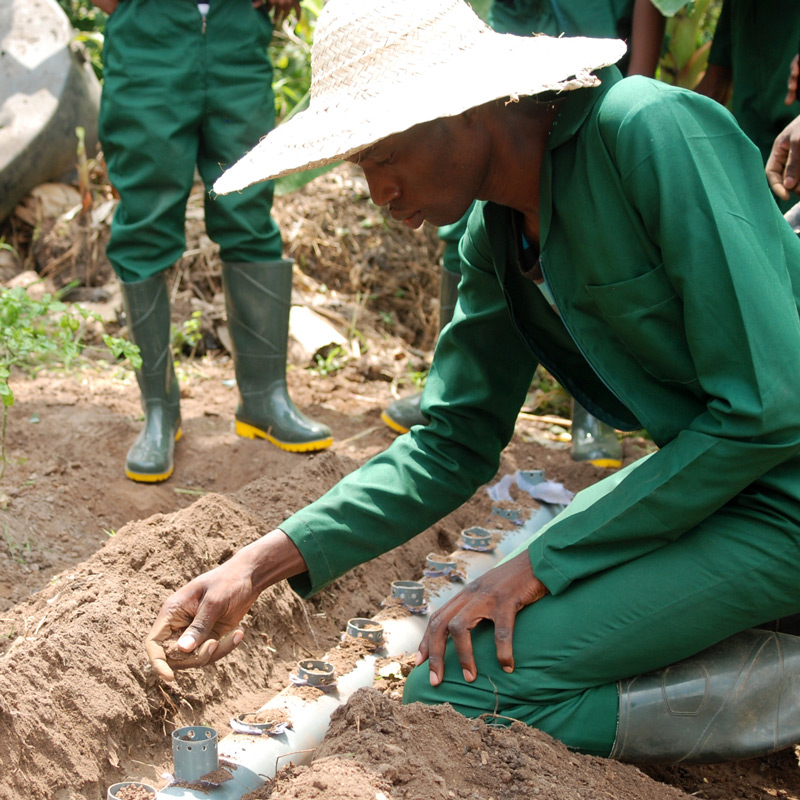The Chief Executive of Nigerian Agricultural Mechanisation and Equipment Leasing Company (NAMEL), Dr Ahmed Adekunle, has said that Nigeria’s Agricultural productivity is growing at less than 1 per cent which he said is not good for the country.
Dr Adekunle said the reason for the slow growth is because of over 200 per cent increments in the prices of farm inputs.
He stated this known at the flag-off of the Rural Agricultural Development Consortium (RAD-C )with the theme ” Repositioning Nigeria Agriculture for Global Competitiveness” in Abuja.
“Today with the rising cost of farm inputs where there are over 200 per cent increments in the prices of herbicides and fertilisers, the cost of a tractor in 2013 was 5.5 million naira but today it has increased to 35 million Naira for the same tractor.
“The price of diesel has increased by almost 300 per cent and our population is projected to be 263 million by 2030 and 401 million by 2050 according to Development experts yet our agricultural productivity is growing at less than one per cent,” he noted.
“The question is how then do we feed the over 250 million people by 2030? How do we achieve so much economic diversification and be part of the global agriculture competitiveness like Brazil, China, India, Thailand, Vietnam etc,” he asked.
According to him, there is a need to reposition the agriculture sector for global competitiveness and to address the issue of food insecurity in the country.
Adekunle said RAD-C model would fast-track projects for national food, nutritional and social security.
The model according to him is not going to compete with smallholder farmers for the available lands but will develop the unused contiguous arable lands, opening new opportunities for the communities and the farmers.
Adekunle said the Short-term goal of RAD-C would be to develop 500,000 hectares of contiguous farmland across different states which would create one million direct jobs and about two million indirect jobs for community youths and women.
It will also help in Producing 2.5million Metric tons of premium crops annually which include Rice, Maize, wheat, and cassava which would attract an estimate of N50 billion worth of investment directly to the rural communities.
Increase yield per hectare by at least 100 per cent to revive the rural economy and fast track development of about one hundred communities thereby reducing rural-urban migration and poverty index.
Dr Martin Fregene, Director of Agriculture and Agro-Industry, Africa Development Bank (AFDB) said the food crisis in Africa was as a result of the COVID-19 pandemic, the planning change that has affected ecosystem and the global food crisis.
According to him, Africa has so much potential, sunshine, mass land and human capital resources but we rely on countries at war.
He said there was a need for structural change, Africa need technology to project its agricultural sector and raise its productivity.
He said to raise agricultural productivity there is a need to ensure farmers have access to quality seeds which should be affordable and available.
He said another issue affecting food production is the lack of storage system and lack of finance for the agriculture sector.
”The African Development Bank is trying to address some of the challenges affecting food productivity in Africa as a whole.”
He, however, noted that for there to be good productivity there must be mechanisation in place.
Also, Engr John Drain, Deputy Director, Department of Engineering and Mechanisation of the Ministry of Agriculture and Rural Development, (FMARD) said if the right mechanisation are not use it will be difficult to address the issue of food security.
”There is a need to work together to address the challenges facing the agriculture sector such as climate change, use of mechanisation, agric business and agric economy to succeed as a nation,” he said.


